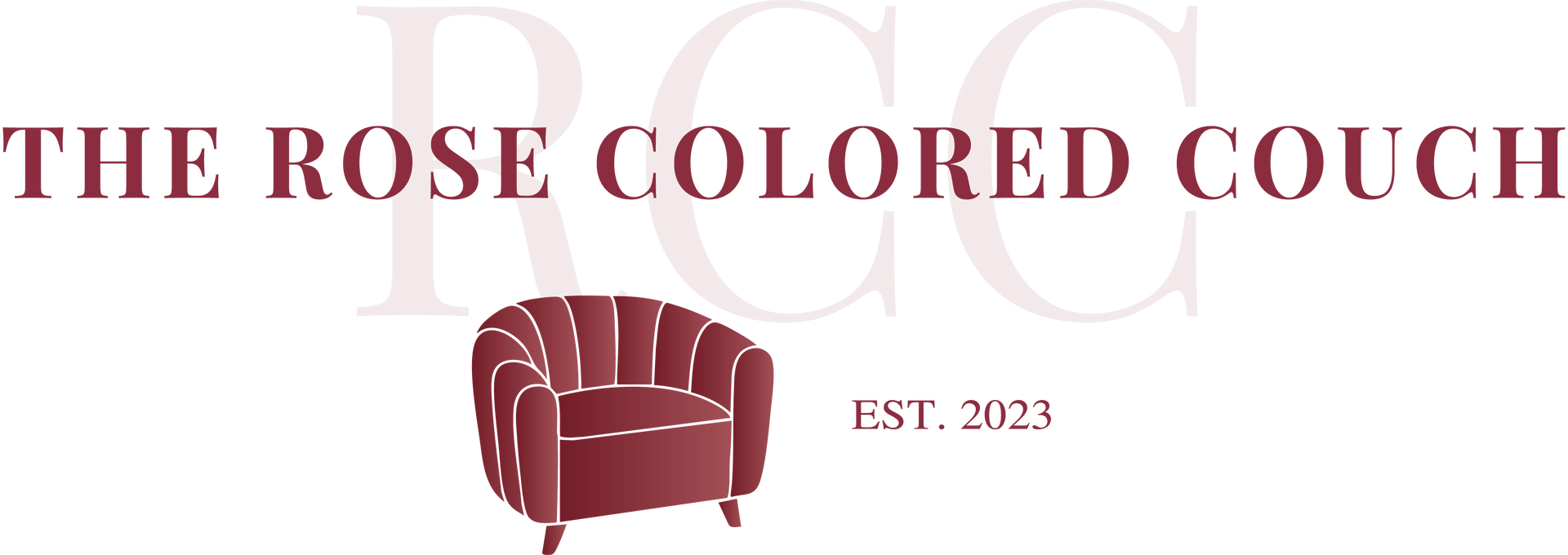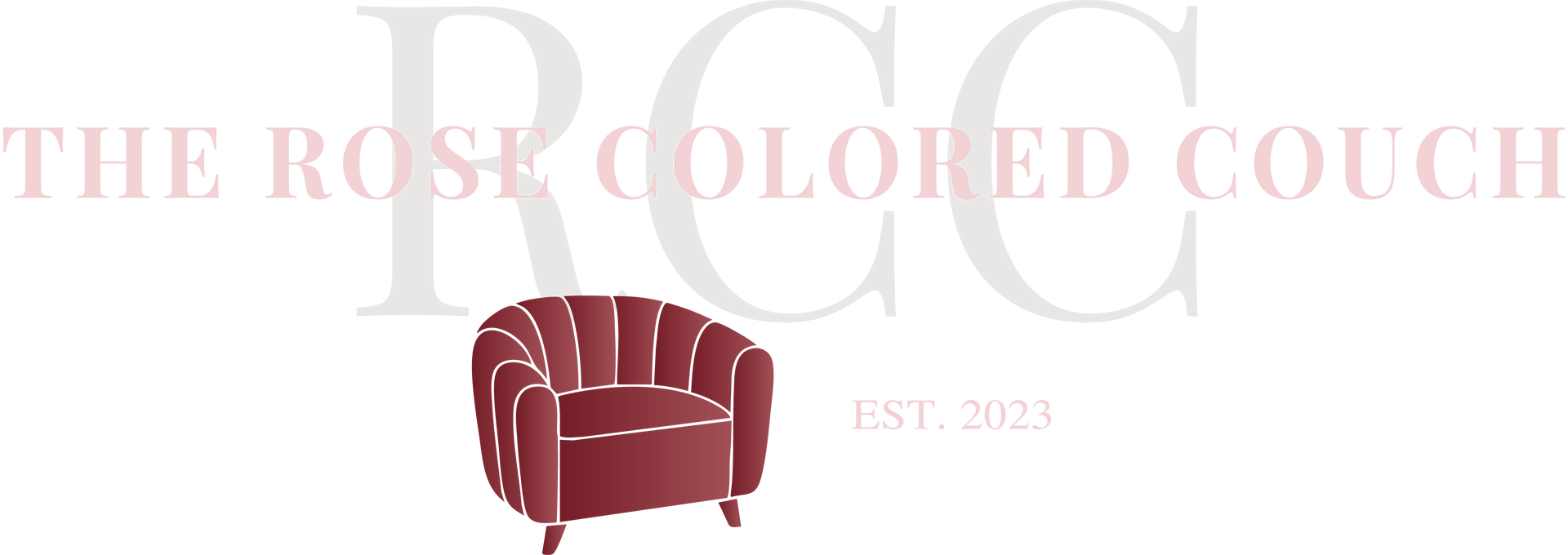High Achiever Anxiety Therapy Virginia: Why Your Relationship with Anxiety Might Be the Real Enemy
By Dr. Najwa Mohamed • September 19, 2025

Introduction
If you're reading this, chances are you're the kind of person others look at and think "she has it all together." You've checked the boxes: good grades, impressive career, maybe even the perfect Instagram feed. But behind that polished exterior, there's something else happening. Your mind races at 2 AM, analyzing every conversation from the day. You second-guess decisions you've made a thousand times. You feel like you're one mistake away from everyone discovering you're not as capable as they think.
You're not alone, and you're definitely not broken. What you're experiencing is high achiever anxiety, and it's incredibly common among women in Virginia who've learned that their worth is tied to their performance. The truth is, anxiety isn't inherently your enemy, but the way you've been taught to relate to it might be holding you back from the peace and confidence you deserve.
As a licensed clinical psychologist with over six years of experience specializing in anxiety therapy for high-achieving women in Virginia, I've seen how this pattern plays out again and again. The good news? When you understand where this anxiety comes from and learn to change your relationship with it, everything can shift.
Article Outline
In this comprehensive guide, we'll explore:
- What high achiever anxiety really looks like for women
- How perfectionism fuels anxiety in high-achieving individuals
- The unique pressures facing successful women in Virginia
- Why traditional anxiety management often falls short for high achievers
- How to transform your relationship with anxiety from enemy to ally
- Practical strategies used in therapy for perfectionism and anxiety
- When it's time to seek professional support for anxiety therapy
What High Achiever Anxiety Actually Looks Like
High achiever anxiety isn't just feeling nervous before a big presentation. It's a complex pattern that shows up in ways you might not even recognize as anxiety. For many high-achieving women I work with in my Virginia practice, anxiety looks like:
The Perfectionism Trap: You spend hours perfecting a project that could have been "good enough" in half the time. The fear of making a mistake or being perceived as anything less than excellent drives you to over-prepare for everything.
People-Pleasing Exhaustion: You say yes to requests even when your schedule is already overwhelming because the thought of disappointing someone feels unbearable. You constantly worry about what others think of you.
Imposter Syndrome on Steroids: Despite your obvious competence and track record of success, you feel like you're fooling everyone. You attribute your achievements to luck rather than skill, and you live in fear of being "found out."
Analysis Paralysis: You overthink decisions to the point where making any choice feels impossible. You research every option exhaustively, seeking the "perfect" choice that doesn't exist.
This type of anxiety therapy addresses these specific patterns that high achievers experience. Unlike generalized anxiety, high achiever anxiety is often invisible to others because you've become so skilled at managing your image and meeting expectations.
The Perfectionism-Anxiety Connection for High Achievers
Perfectionism and anxiety are intimately connected, especially for women who've learned that their value depends on their performance. In my therapy practice, I often see how perfectionism actually fuels anxiety rather than preventing it.
Here's what happens: Your brain learns that being "perfect" keeps you safe from criticism, rejection, or failure. So whenever you're facing a situation where you might be evaluated, which for high achievers is pretty much constantly, your anxiety kicks in as a warning system. It's trying to motivate you to work harder, prepare more, and avoid any possibility of falling short.
The Problem: This system is exhausting and ultimately counterproductive. Anxiety therapy for high achievers focuses on understanding that perfectionism isn't actually protecting you. It's keeping you trapped in a cycle of constant stress and self-doubt.
What We Work On:
In therapy for perfectionism, we explore how to maintain your high standards and drive for excellence while releasing the crushing pressure of never being allowed to be human. You can be successful without being perfect.
Why High-Achieving Women Face Unique Anxiety Challenges
Working with women in Virginia, from Northern VA's competitive professional landscape to Richmond's entrepreneurial community, I've observed how societal expectations create additional layers of anxiety for high achievers.
The "Having It All" Myth: You're expected to excel in your career while also being a perfect partner, friend, daughter, and potentially mother. The pressure to balance multiple roles flawlessly is a recipe for anxiety.
Visibility and Judgment: Success often comes with increased visibility, which means more opportunities for criticism and judgment. The higher you climb, the more people are watching, and for those prone to anxiety, this can feel overwhelming.
Imposter Syndrome in Male-Dominated Fields: Many of my clients work in fields where they're one of few women in leadership roles. This creates additional pressure to prove themselves while managing anxiety about whether they truly belong.
Therapy for high achievers addresses these specific pressures and helps you develop strategies that work within your real-world context.
When Your Relationship with Anxiety Becomes the Problem
Here's the thing about anxiety: it's not inherently bad. Anxiety can motivate you, help you prepare, and alert you to genuine problems that need attention. The issue arises when your relationship with anxiety becomes dysfunctional.
Anxiety as Enemy: Most high achievers I work with in therapy have learned to see anxiety as something to fight, suppress, or overcome. This creates an internal war that's exhausting and often unsuccessful.
Anxiety as Fuel: Some high achievers become addicted to the adrenaline rush of anxiety-driven productivity. They worry that without anxiety pushing them, they'll become lazy or unsuccessful.
Anxiety as Identity: For others, anxiety has become so woven into their identity as a high achiever that they can't imagine who they'd be without it.
In anxiety therapy, we work on developing a healthier relationship with anxiety, one where you can acknowledge anxious thoughts and feelings without being controlled by them.
Anxiety Therapy in Northern Virginia and Washington DC Area
The Washington DC metropolitan area, including Northern Virginia, presents unique challenges for high achievers. The competitive environment in Washington DC and surrounding Virginia areas can intensify anxiety for those already prone to perfectionism.
Therapy in Arlington and Alexandria: Many professionals working in Arlington and Alexandria face long commutes and high-pressure jobs that can exacerbate anxiety symptoms.
Virtual Therapy for Busy Professionals: Online therapy offers flexibility for high achievers who struggle to fit traditional therapy appointments into their packed schedules.
Living and working in Virginia presents unique opportunities and challenges for high-achieving women. From the fast-paced professional environment of Northern VA to the growing tech and healthcare sectors throughout the state, the pressure to excel is real.
Northern Virginia's Competitive Culture: The DC metro area attracts ambitious, driven people, which can create an environment where high achievement is the norm rather than the exception. While this can be motivating, it can also fuel comparison and perfectionist anxiety.
Work-Life Balance Challenges: Virginia's proximity to DC means many professionals face long commutes, high-pressure jobs, and the expectation to be constantly available. This can exacerbate anxiety for those already prone to overthinking and overworking.
Cultural and Family Expectations: Many high-achieving women in Virginia are also navigating family expectations, whether as daughters of immigrants balancing cultural values with American professional demands, or as women trying to honor both traditional and progressive ideals of success.
Therapy for anxiety in Virginia takes these contextual factors seriously, helping you navigate your specific environment while building resilience and self-compassion.
Understanding Your Anxiety Triggers as a High Achiever
In therapy for high achievers, we spend significant time identifying what specifically triggers your anxiety. Common triggers I see include:
Performance Evaluations: Whether formal reviews at work or informal feedback, any situation where you're being assessed can trigger intense anxiety about not measuring up.
Making Mistakes: High achievers often have a disproportionate fear of errors, seeing them as catastrophic failures rather than normal parts of learning and growth.
Delegation and Trust: Many high achievers struggle with anxiety when they have to rely on others, fearing that no one else will meet their standards.
Rest and Downtime: Paradoxically, many high achievers feel anxious when they're not being productive, as if their worth is tied to constant output.
Understanding your specific triggers is the first step in developing more effective coping strategies in anxiety therapy.
How Traditional Anxiety Treatment Falls Short for High Achievers
Many high achievers come to therapy having tried traditional anxiety management techniques with limited success. Here's why standard approaches often don't work for this population:
Generic Relaxation Techniques: Telling a high achiever to "just relax" or "don't worry about it" dismisses the legitimate pressures they face and the adaptive aspects of their drive.
Medication Alone: While medication can be helpful, it doesn't address the thought patterns and beliefs that fuel high achiever anxiety.
One-Size-Fits-All CBT: Basic cognitive behavioral therapy approaches may not account for the complex relationship high achievers have with their standards and goals.
Ignoring the Context: Treatment that doesn't acknowledge the real pressures and expectations high achievers face can feel invalidating and ineffective.
Effective therapy for high achievers requires a nuanced approach that honors your drive while helping you find sustainable ways to manage anxiety.
Reframing Your Relationship with Anxiety
One of the most transformative aspects of anxiety therapy for high achievers is learning to reframe your relationship with anxiety. Instead of seeing anxiety as an enemy to defeat, you can learn to see it as information to consider.
Anxiety as Information: Your anxiety might be telling you something important that you need to prepare more, that something doesn't align with your values, or that you're taking on too much.
Anxiety as Energy: The physical energy of anxiety can be channeled into productive action rather than spinning in worry cycles.
Anxiety as Temporary: Learning that anxiety is a temporary state rather than a permanent condition can help you ride out difficult moments without being overwhelmed.
This reframing work is central to therapy for perfectionism and helps you develop a more flexible, compassionate relationship with your internal experience.
Types of Anxiety Therapy for High Achievers
Different types of anxiety therapy work better for high achievers than traditional approaches:
Cognitive Behavioral Therapy (CBT): This therapy approach helps high achievers identify thought patterns that fuel anxiety and perfectionism.
Dialectical Behavioral Therapy (DBT): Particularly helpful for managing intense emotions and developing distress tolerance skills.
Acceptance and Commitment Therapy (ACT): This approach helps high achievers align their actions with their values rather than their fears.
Online Therapy Options:
Many high achievers in Virginia benefit from virtual therapy sessions that fit their busy schedules.
Practical Strategies for Managing High Achiever Anxiety
In my therapy practice, I use a combination of approaches that work specifically well for high-achieving women:
Cognitive Restructuring for Perfectionists: We examine the thought patterns that fuel your anxiety, like "If I don't do this perfectly, I'll be a failure," and develop more balanced, realistic thoughts.
Values-Based Decision Making: Instead of making choices based on anxiety and fear, you learn to make decisions based on your actual values and priorities.
Boundary Setting for High Achievers: Learning to set boundaries without feeling guilty or anxious about disappointing others is crucial for sustainable success.
Mindfulness and Present-Moment Awareness: Developing the ability to stay present rather than spiraling into future worries or past regrets helps you feel less overwhelmed.
Somatic Awareness: High achievers often live in their heads and disconnect from their bodies. Learning to recognize and respond to physical symptoms can help manage anxiety more effectively.
These strategies are tailored specifically for people who want to maintain their high standards while reducing anxiety. Therapy can help you develop these skills in a supportive space where you can explore what works best for your unique situation
The Role of Self-Compassion in Anxiety Recovery
Self-compassion is often the missing piece for high achievers struggling with anxiety. Many of my clients are incredibly kind and understanding with others but ruthlessly critical with themselves.
The Inner Critic: That voice in your head that tells you you're not doing enough, you're behind, you should be further along, this inner critic often fuels anxiety.
Perfectionist Self-Talk: High achievers often engage in black-and-white thinking: "If I'm not the best, I'm the worst" or "If I make a mistake, I'm a failure."
In therapy for perfectionism, we work on developing a more compassionate inner voice, one that can acknowledge mistakes and shortcomings without harsh judgment.
Self-Compassion
Practices: Learning to speak to yourself the way you'd speak to a beloved friend can dramatically reduce anxiety and increase resilience.
When Professional Support Makes the Difference
Many high achievers resist seeking therapy because they're used to figuring things out on their own. However, anxiety therapy can be particularly beneficial for high achievers because:
Objective Perspective: A therapist can help you see patterns and blind spots that are difficult to recognize when you're in the middle of them.
Specialized Strategies: Therapy for high achievers uses techniques specifically designed for people with your particular strengths and challenges.
Safe Space to Be Imperfect: Therapy offers a place where you can drop the performance and be authentic about your struggles.
Accountability and Support:
Having professional support can help you implement changes that you might struggle to maintain on your own.
Building a Support System for Sustainable Success
High achievers often struggle with isolation, either because they don't want to burden others with their problems or because they believe they should be able to handle everything alone.
Professional Support: This includes not just therapy, but also mentors, coaches, and other professionals who understand the unique challenges of high achievement.
Personal Relationships: Building authentic relationships where you can be yourself, struggles and all, is crucial for mental health.
Peer Support: Connecting with other high achievers who understand your experiences can be validating and helpful.
In therapy, we often work on how to build and maintain these support systems while managing the vulnerability that comes with letting others see your struggles.
Managing Anxiety in High-Pressure Environments
Whether you work in Northern Virginia's competitive tech sector, Richmond's growing startup scene, or anywhere in between, managing anxiety in high-pressure environments requires specific skills:
Preparation vs. Over-Preparation: Learning the difference between adequate preparation and anxiety-driven over-preparation.
Setting Realistic Expectations: High achievers often set impossible standards and then feel anxious when they can't meet them.
Stress Management Techniques: Developing quick, effective ways to manage anxiety in the moment, especially in professional settings.
Communication Skills:
Learning to advocate for yourself and communicate your needs without feeling anxious about potential conflict.
The Intersection of Cultural Expectations and High Achievement
Many high-achieving women I work with in Virginia are also navigating cultural expectations, whether as daughters of immigrants, women of color, or members of other communities with specific values around success and achievement.
Family Expectations: Balancing your own goals and values with family expectations can create additional anxiety.
Cultural Code-Switching: Moving between different cultural contexts throughout your day can be exhausting and anxiety-provoking.
Representation Pressure: When you're one of few people from your background in your field, the pressure to represent your entire community can fuel anxiety.
Therapy for high achievers takes these intersectional identities seriously and helps you navigate the complexity of your experience.
Long-Term Strategies for Anxiety Management
Sustainable anxiety management for high achievers isn't about eliminating anxiety entirely. It's about developing a healthy relationship with anxiety that allows you to thrive:
Regular Check-Ins: Developing the habit of regularly assessing your stress levels and anxiety triggers.
Ongoing Self-Care: Building sustainable self-care practices that fit with your busy lifestyle and high standards.
Flexibility and Adaptation: Learning to adjust your strategies as your life and circumstances change.
Continued Growth:
Embracing the mindset that managing anxiety is an ongoing process rather than a problem to solve once and for all.
Finding the Right Therapist for High Achiever Anxiety
When seeking anxiety therapy for high achievers, finding the right therapist is crucial for your success. Look for a therapist who:
Specializes in High Achiever Therapy: Not all therapists understand the unique challenges facing high-performing individuals. You want someone who recognizes that your drive is a strength, not a problem to fix.
Offers Evidence-Based Treatment Approaches: Effective anxiety therapy for high achievers often combines cognitive behavioral therapy, mindfulness techniques, and approaches specifically designed for perfectionism.
Understands Your Professional Context:
Whether you work in Northern Virginia's competitive environment or other high-pressure settings, your therapist should understand the real pressures you face.
When to Seek Professional Help
If you recognize yourself in this description of high achiever anxiety, it might be time to consider professional support. Some signs that therapy could be helpful include:
- Your anxiety is interfering with your sleep, relationships, or overall quality of life
- You find yourself avoiding opportunities because of anxiety
- You're using unhealthy coping mechanisms like overwork, perfectionism, or isolation
- You feel stuck in patterns you can't break on your own
- Your anxiety is affecting your physical health
Working with Dr. Najwa Mohamed at The Rose Colored Couch
As a licensed clinical psychologist with over six years of experience who specializes in anxiety therapy for high-achieving women in Virginia, I understand the unique challenges you face. My approach combines evidence-based techniques from CBT, DBT, and psychodynamic therapy, tailored specifically for women who are used to excelling but struggling with the internal pressure that comes with high achievement.
In our work together, we'll explore not just your anxiety symptoms, but the beliefs, expectations, and patterns that fuel them. We'll work on developing a more sustainable relationship with success, one that allows you to maintain your high standards while also finding peace, self-compassion, and genuine confidence.
I particularly understand the experience of women navigating multiple cultural worlds, as someone who grew up as the daughter of an Egyptian father and American mother. This bicultural experience has given me unique insight into the pressures many high-achieving women face when trying to honor different expectations and values.
Summary and Next Steps
High achiever anxiety isn't a character flaw or a sign of weakness. It's a common experience among women who've learned that their worth is tied to their performance. The key isn't to eliminate anxiety entirely, but to transform your relationship with it.
Remember:
- Anxiety can be information rather than a crisis
- Perfectionism often fuels rather than prevents problems
- Self-compassion is a strength, not a weakness
- Professional support can accelerate your healing and growth
- You can be successful without being perfect
If you're ready to explore a different relationship with anxiety, one that allows you to maintain your drive and ambition while finding more peace and self-compassion, therapy can be an invaluable support.
Ready to transform your relationship with anxiety?
As a licensed clinical psychologist specializing in anxiety therapy for high-achieving women in Virginia, I provide compassionate, evidence-based treatment that helps you thrive without the constant pressure of perfectionism.
Dr. Mohamed only works with adult women and is only accepting out-of-network clients who do not have Anthem or Sentara insurance at this time.
I offer therapy for high-achieving women throughout Virginia, both in-person and virtually. Contact me at najwa.mohamed@therosecoloredcouch.com to learn more about how we can work together to help you thrive without the constant pressure of perfectionism.
You don't have to choose between success and peace of mind. Both are possible, and you deserve both.
Breaking the Cycle of Overthinking
Quiet the mental noise and move forward with confidence.
This 9-page guide shares proven psychological strategies and real client success stories.
SHARE THIS
Rose Colored Couch Blog

About Dr. Najwa Mohamed
I know how it feels to balance family expectations with the desire to build a life that’s truly your own. As the daughter of an Egyptian father and an American mother, I’ve lived the tension of navigating multiple worlds, feeling torn between roles, and striving to honor both my roots and my dreams.
Through my own therapy and self-discovery, I learned to release the beliefs that kept me small and embrace my authentic self.
Since 2018, I’ve helped women from immigrant families do the same. My clients often say they feel seen and understood, sometimes for the first time. This is therapy with someone who understands the pressures you carry and walks beside you as you move through them.






